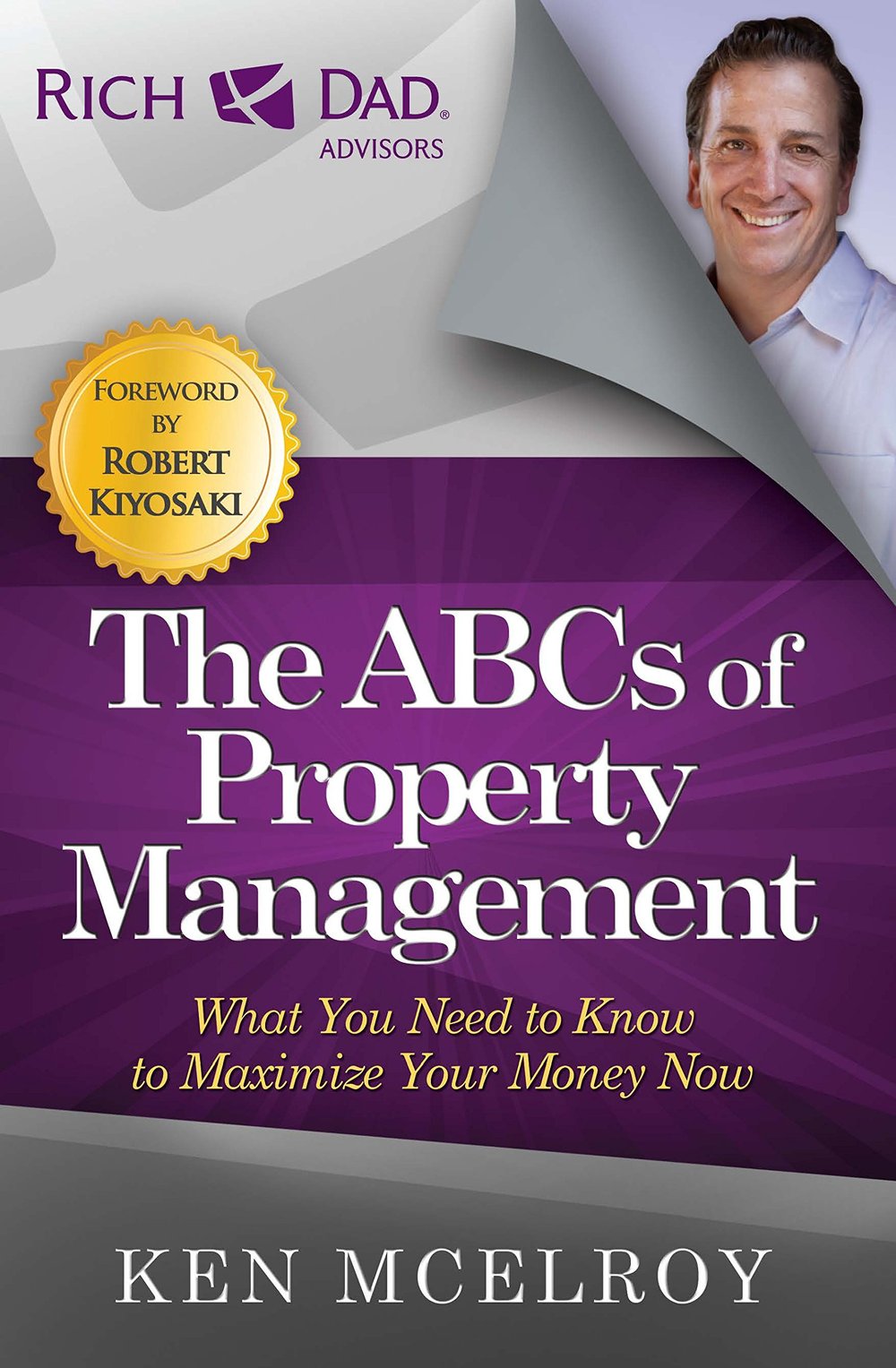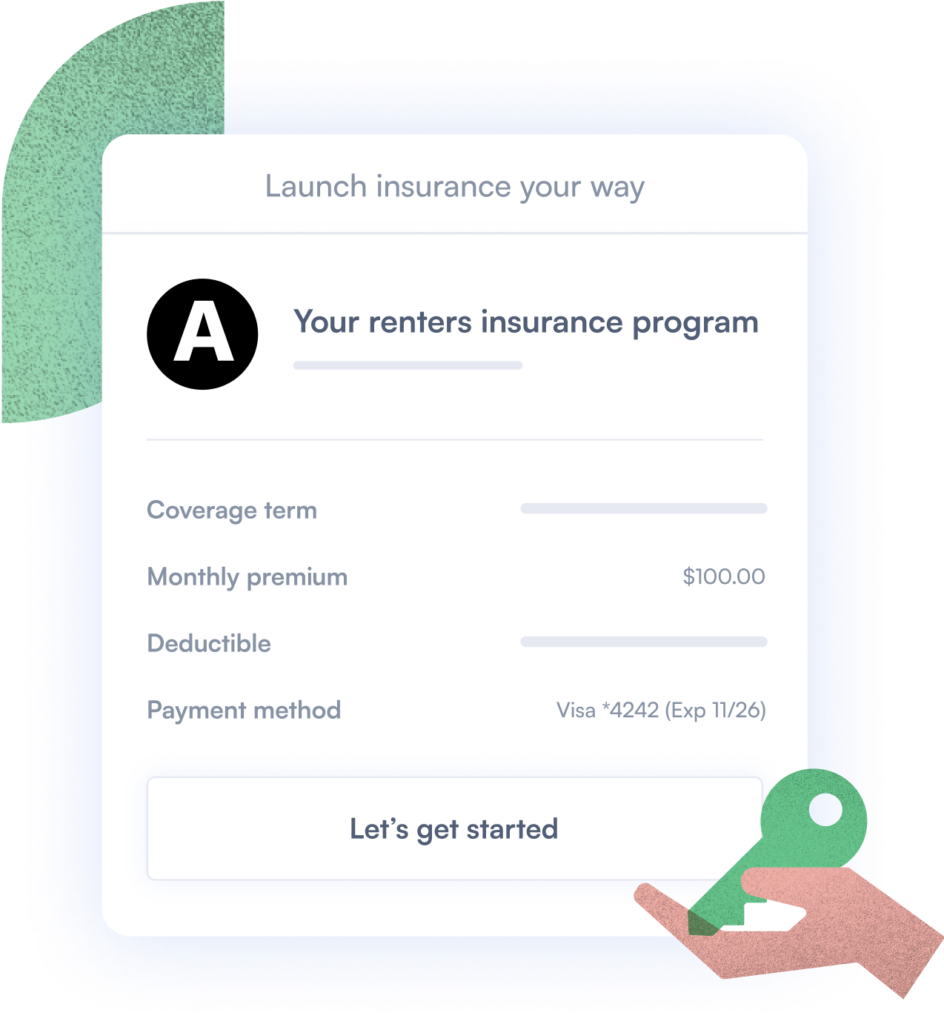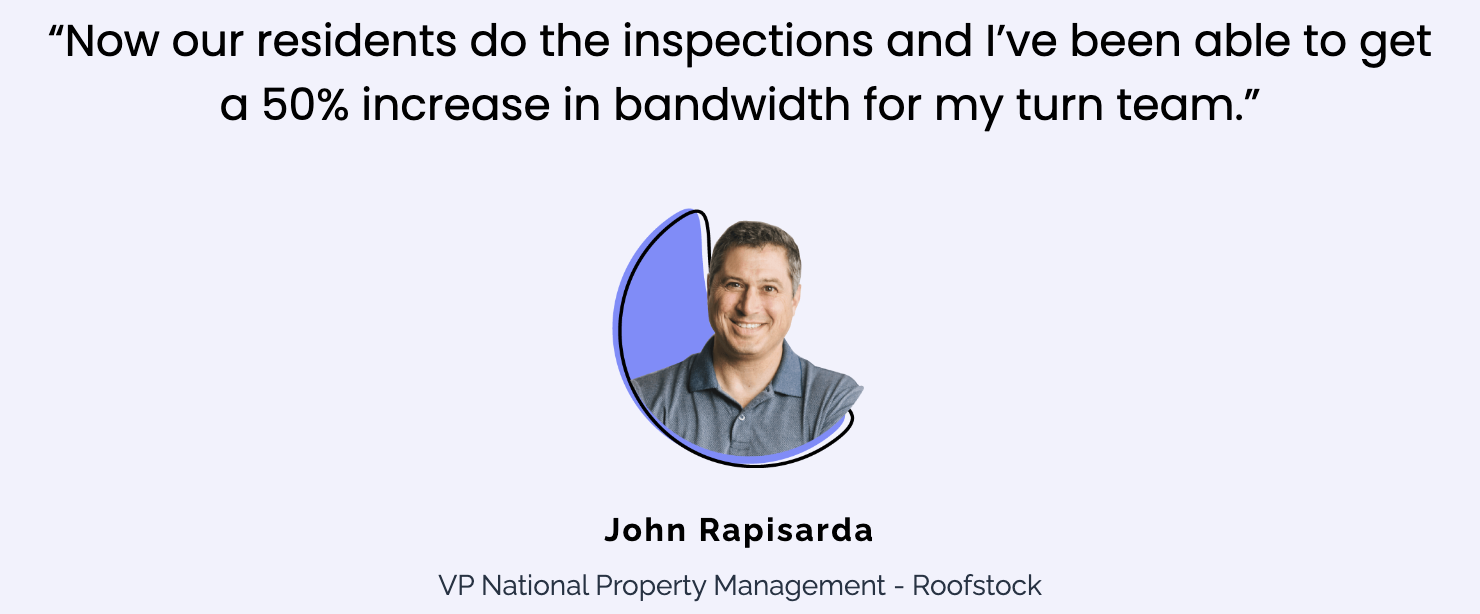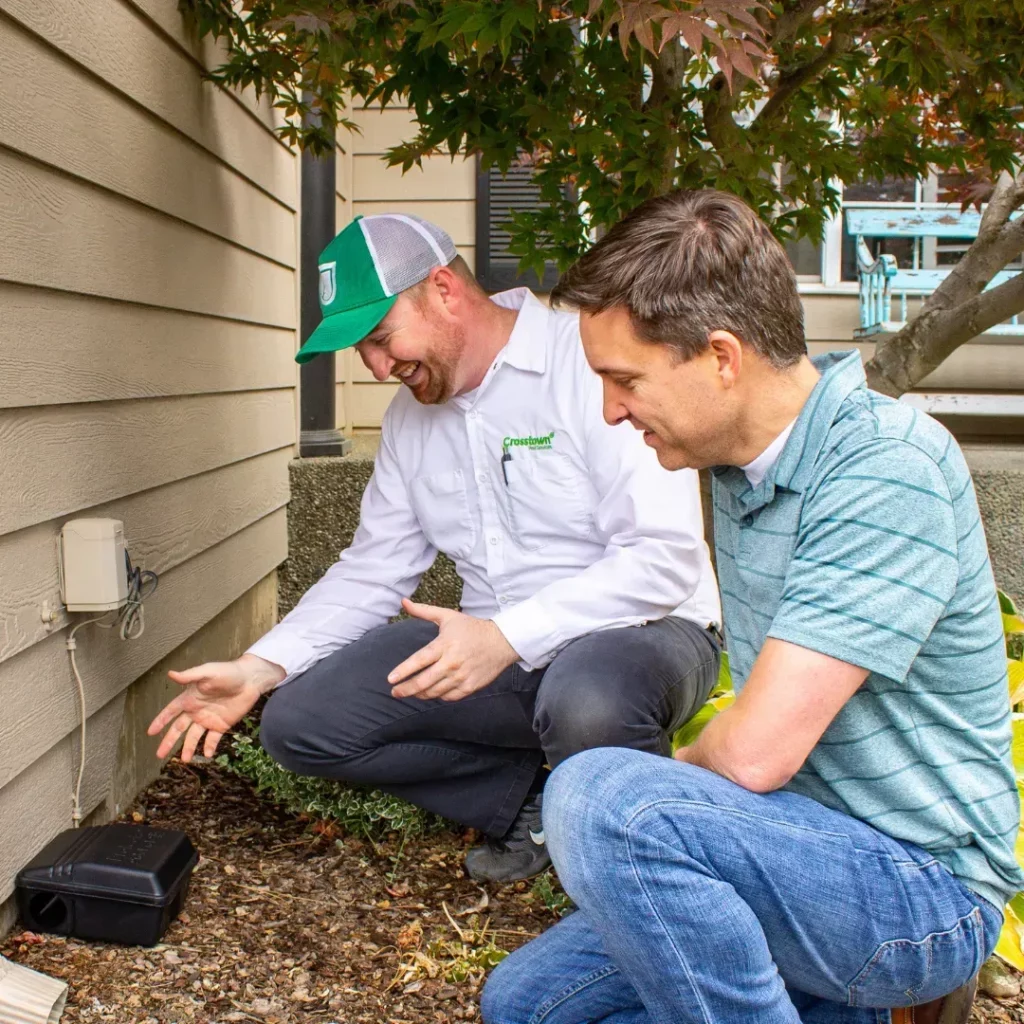The ABCs of Property Management by Ken McElroy is part of the Rich Dad, Poor Dad series of books. Like most Rich Dad, Poor Dad books this is heavy in anecdotes and inspiration, but light on practical how-tos or step by step instructions.
Most of the book is an inspirational sales pitch for the property management industry. Towards the end book, McElroy gives practical advice on how to pick the right property manager. If you are already a property manager, this book references many best practices, but does little to tell you how to implement them.
My favorite part of the book was the introduction. It outlines the characteristics and mindset of the best property managers. I’ve paraphrased it below:
“A property manager’s job is to add value for the property owner. Think about that for a moment. Do all property managers see their job that way? Probably not.
How can a property manager add value? One way to measure this is to increase the Net Operating Income. The is achieved through several methods: increasing rents, reducing turnovers, reducing utilities fees, and keeping maintenance costs low. Another way to add value is to maintain and improve the property’s value. For investment properties, this is achieved through the steps listed before. In addition, ensuring the low maintenance costs are not creating a deferred maintenance nightmare later down the road.
”
Here is a bullet summary of the remainder of the book. I’d recommend it to anyone looking for interesting anecdotes from an industry veteran. They were highly entertaining reads.
Should I Manage My Own Property or Hire Someone to Do It for Me?
Size Doesn’t Matter
- Good management practices can and should be applied to properties of any size: from a single family home to large multi-unit towers and apartment complexes.
- In this chapter there is a story about a 200 unit building the author’s company took over. Inside this story there are helpful reminders and anecdotes about the things a property manager should be aware of.
- Are you charging premiums for units on higher floors? With more rooms/square footage?
- Are your vacant units actually ready to rent?
- Are maintenance service requests being handled in a timely manner? Long overdue requests increase turnovers.
- Staff: If you are unable to meet your needs, is it a case of being understaffed or a case of staffing the wrong people?
- Even small properties, like single family homes can have major challenges. These challenges do not usually take the form of a single major catastrophe, but instead a series of small mistakes that add up and greatly reduce value (i.e. charging under market rent, deferring maintenance, not signing leases or using improper forms, etc.).
- Most amateur investors rationalize away these mistakes and chalk them up to the property being a “bad investment” when in fact, it was bad management.
- Without management systems in place, you may get lucky for your first few tenants, or even many years of operation. Eventually, however, unsound management practices will catch up to you and result in tens of thousands of dollars in lost rent or damages.
- Beyond just the financial impact, poor management can have deep emotional costs: expensive repairs, evicting tenants, or just dealing with late rent is stressful.
Property Management Systems
- Managing rentals long distance is incredibly challenging. The key to success is having a solid team. Consider the following roles for your team:
- Local broker – someone who understands the market and provide you unique insights and data.
- Local property manager – someone who understands the changing market and can change with it.
- Attorney – to draft and review legal documents.
- Due diligence team – people to inspect the entire property and find things that you would otherwise miss.
- Every major city has tons of sub-markets. When managing remotely, it is tempting to use one-size fits all techniques because other rentals in the city use similar techniques. That may cause you to miss out on trends within your rentals’ specific neighborhood.
- With larger properties, the opportunity for losses from small mistakes are greatly amplified. For example, undercharging only $45/month on 100 units translates to $54,000 in lost income per year. At a 4% cap rate, that is $1.35M in value lost.
- Dealing with residents is an investors biggest fear. This fear is what drives investors to not make the tough decisions, like not giving the tenant an extra week to pay the rent, not raising the rent, not charging for damages on move-out. Don’t let fear ruin your investment. If you fear this is you, consider hiring a property manager. If you don’t believe you could evict a family, do not manage a property. Hire someone to do that for you.
- When dealing with tenants, you will need to (among other things): find them, collect rent/fees, be a sounding board for them, address their maintenance issues, enforce policies and contracts, deal with intra-resident relationships (in mutli-family).
Maintenance
- Maintenance is the single most time-consuming and expensive part of owning an investment property.
- Maintenance is also the reason residents move out. If they are not happy with your service, they will move down the street, even if it means paying more in rent.
- One bad maintenance experience is enough to motivate your tenants to shop around for alternative places to live.
- Paying to advertise and re-fill a vacant unit is much more expensive than hiring a handyman to make a simple repair quickly.
- Relying on a tenant to “take care” of your investment will result in costly deferred maintenance. Hire professionals and keep it in your control. Also, save your receipts–you can deduct the maintenance costs from your taxes!
- Deferred maintenance hurts you in three ways:
- Rents are reduced because the rental is providing low value to tenants.
- Turnovers are increased, which increases expenses.
- The sale price is reduced, moreso than just the cost of the maintenance. Buyers must also account for lost time and the additional lost rents.
- Property management companies can achieve economies of scale: they can negotiate lower rates with technicians and have their problems serviced with higher priority.
- Your property’s success depends greatly on how well you understand this simple truth: When fixing their homes, tenants expect you to be accommodating to their schedules, not to yours. In fact, they are paying you for this service. In property management, your tenant’s schedule will be your schedule.
Learn more about creating amazing maintenance experiences that retain tenants and keep your property values high by joining our email list.
Vacancy, Turnover, and Leasing
- A simple truth: if it takes you 2 weeks to fill a vacant unit, you have lost 2 weeks of potential income. Reduce your turnover time and you will make more money.
- Have a standard inspection form for move-in and move-out. Have the tenant sign it and keep it for your records.
- Photographic documentation is best. Not only will it protect you legally, but it will reduce tenant disputes in the first place.
- At move out, you must do two things: determine how much to deduct from the security deposit and line up the work required on the unit to make it move-in-ready again.
- Many people try to save money by doing turnover work themselves. This is pennywise and pound-foolish. On a $1500 unit, every day the unit sits vacant is $50 in lost income. Moreover, the opportunity cost of you directing your labor towards the turnover is higher than that: could you be spending your time in other ways to be increasing your recurring income instead?
- Always perform a background check on your tenants. This should be common sense and should not require explanation. If you disagree, I strongly question your judgment.
- Use standard application forms and charge an application fee to cover all of your expenses.
Laws: Federal, State, and Local
- Work with professional attorneys to help cover you. Rental laws are complex. You should seek legal help. Why spend hundreds of thousands on an investment property and then choose to save a few hundred bucks by not hiring a lawyer? That savings can cost you tens of thousands later.
- Put simply: in many localities it is incredibly difficult to evict a tenant unless you have proper documentation from the very beginning of the lease. Use a lawyer to get you on the right track so that if you have to evict someone, you don’t find yourself in a situation where you cannot.
- Key documents and help you should get from your lawyers:
- A solid lease compliant with local laws.
- Guidance on what needs to be documented and in what format.
- Standard notices to be used as required.
- Incorporating as an LLC for legal liability protection.
- Key things to document and forms to always have on hand include:
- Leases
- Addendums to the lease (parking, pets, disclosures)
- Move-in/move-out forms
- Community policies and procedures
- Resident communication logs
- Any legal notices
- Traffic logs to keep track of potential tenants.
- Always document tenant communication.
Cash Flow Management
- A good management plan equates to two tasks: increasing income and reducing expenses.
- You should think of your only goal as increasing cash flows. Cash flows are the value of the investment. Consider property appreciation as a bonus. You do not control property appreciation.
- Income – expenses – debt = cash flow.
- Essential elements for an revenue statement:
- Gross potential rent income: The theoretical maximum rent that could be collected on a property if all units were offered at market rates and had 100% occupancy with paying tenants. Make sure you charge differently based on floor plan, floor, location, etc.
- Gain/Loss to old lease: Gross potential rent/income – Actual potential rent/income. Total amount that could be collected based on your actual leases
- Concessions: These are free giveaways, like one month free rent.
- Other Loss: Other categories of money that is owed to you but you cannot collect/tenants are refusing to pay (e.g. delinquent rent, unpaid late fees, damages). Essentially these are bad debts.
- Vacancy: There are two different types of vacancy to track: physical vacancy and economic vacancy.
- Physical vacancy = Vacancy losses / Gross potential rent income
- Economic vacancy = . Effective rental income / (gross potential rent income – loss to old lease)
- Effective Rental Income = Gross potential rent income – loss to old lease – concessions – other loss – vacancy losses. This is the amount of money you truly collect from rents.
- Other Income: All other non-rent income sources, such as fees, parking, laundry, etc.
- Total Income = Effective Rental Income + Other Income
- Essential elements for an operating expenses statement:
- Professional Management: Expected fees paid to professional managers. This book advises against flat rate managers because they lack skin in the game.
- On-Site Management/Payroll: Total expenses (including benefits, bonuses, taxes) to required on-site staff. Remember: quality people cost money, Trying to trim costs here too much will result in worse overall performance. Be careful to hire the right people, not just put a warm body in a seat. You will get what you pay for… and if you do not pay enough you will lose more than you save through worse tenant experience.
- Administrative: Legal fees, basic office supplies, etc. This should remain relatively constant year to year.
- Advertising: All expenses related to marketing your property, such as paid listings. Be sure to carefully track your traffic sources so you know where your advertising dollars are being spent best.
- Taxes and Insurance: These should be fairly predictable. Contact your tax assessor and shop for insurance quotes if you do not already know these costs.
- Utilities: Try to put as much as legally possible (and normal for the market) onto the tenant as possible.
- Repairs and Maintenance: This includes all routine repair work. It does not include appliance replacements or remodeling. Those should be considered capital expenses.
- Total Operating Expenses: The sum of all of factors above (and any additional you find relevant)
- Essential elements for a cash flow statement:
- Net Operating Income (NOI) = Total Income – Total Operating Expenses
- Capital Expenses: Major improvements and upgrades. Generally it is a good idea to keep a cash reserve to help offset unplanned capital expenses.
- Income Before Debt = NOI – Capital Expenses
- Debt Service: Your mortgage payment.
- Cash Flow: Income Before Debt – Debt Service.
- Building a template for the above in Excel is left as an exercise for the reader.
A Month in the Life of an Owner-Manager
- This list of activities is a typical month for an owner-manager with a full-time job. Let’s cover an 8 unit apartment building renting at $1000/month with 1 vacancy. With one vacancy you are either making very little cash flow or dipping into reserves to continue operating.
- Rent collection usually occurs from the 1st – 3rd of the month.
- Set specific due dates and charge late fees. Strict enforcement is essential; tenants talk and people will know they can push the limits. Fair housing laws require that you treat everyone the same.
- Are tenants paying rent online or via check? If check, you’re spending time cashing checks and chasing people down to give you checks.
- If you’re collecting rent in person, you’re more likely to receive verbal maintenance requests (and have people use the maintenance needs as an excuse not to pay rent).
- Most owner-operators want to save money by handling small maintenance themselves. While it does save some money up-front it may be losing you money in several other ways:
- With a full-time job you have to schedule the repairs farther out into the future, so tenants live with incomplete necessary repairs longer. If the tenants aren’t looking for other places to live, you are probably charging much less than you could be otherwise.
- If you are doing unit turnovers yourself, you are likely only working on weekends. The extra time it takes to make units rent-ready is lost income. Leaving a $900 unit vacant for 10 days is $300 in lost rent.
- Tenants expect you to work on their schedule, not yours. This eats into your personal life. You may be saving $100 for an hour of work, but how many hours of stress and travel and time away from your family are you losing?
- Most owner-operators want to save money by handling small maintenance themselves. While it does save some money up-front it may be losing you money in several other ways:
- Tenants that are delinquent on rent owe you the full rent amount, including late fees. Accepting partial payment means you cannot evict them, since you accepted some payment.
- When considering having someone else do the work, you need to consider whether you have the time and skillset to do the repairs and whether you have the industry contacts to get the work done at a reasonable rate. Are you going to sacrifice time with friends, family, or from work in order to get the required work done?
- It is a bad idea to show a unit that isn’t move-in ready. It greatly reduces the appeal and value of rent you can attract.
- When advertising a vacant unit, are you only using free methods or effective paid advertising? When showing units, you are only available nights and weekends, so you are somewhat limiting the prospective renters available. Also, many might not make their appointments because they are shopping around for a new place to live, not just yours.
- You need to inspect work that subcontractors are doing. Unmanaged contractors will perform work to unmanaged quality.
- The book roughly estimates the time commitment for the property at 28 hours per month, not including travel time. If you make the average US hourly rate ($24.57/hr) and a property management company charges 8% of rent, then you lost just under $160 by self-managing, assuming the management company had the units at 100% occupancy and on-time payment. If not, then you would have lost nearly $320.
How Do I Find a Good Property Manager?
- Remember, property managers do not cover the costs of operating the building. This is still the owner’s responsibility. This includes advertising rentals!
- Fee-based property management encourages complacency on the part of the manager. Their income should be dependent on their performance. Work hard to find a property manager that structures its fees so your incentives are truly aligned.
- The main advantage of hiring a property manager is you no longer have to invest time and energy into your property. The best property manager is one who never calls. You should take advantage of this and let go of your emotional attachment to the property and its operations! If you cannot let go of the operations, you’re wasting your money. Just manage the property yourself.
- Instead, focus your energy on managing the property manager. Try to pick the right management company that can meet your building’s specific needs. Consider the following areas:
- Age of the building.
- Structure(s): single family home? Multi-unit? Common areas?
- Special equipment required?
- Grounds/landscaping requirements?
- Local laws.
- Amenities.
- Administrative needs (on-site/off-site manager).
- Size of the building/number of units.
Not All Property Management Companies Are Created Equal
- Make sure the management company is a member of trade organizations. This indicates they are interested in improving their operations.
- The book goes into great detail on different types of property management companies and the pros and cons of various sizes. A greatly condensed list is as follows:
- National/International: Pros: Generally has standard systems and processes. Cons: Smaller properties get lost/ignored, may not have local knowledge.
- Regional: Pros: Well established network of local vendors. Cons: Tends to have less standardized processes, unable to absorb losses of key employees.
- Mom-and-pop: Pros: Highly personalized service. Cons: Rarely have sophisticated systems.
- Realty company: Pros: Great knowledge of local market. Cons: Management is not primary focus of business.
- Owner/Resident management: Pros: least expensive option. Cons: May not be full aware of legal issues.
Employees, Systems, and Structures: The Backbone of a Company
- Great companies have excel all three of the following: great employees, robust systems, and solid structure to ensure the employees and the systems interact smoothly.
- Employees:
- Are they well trained? Does the company offer continuous training?
- Are they well paid? Low pay leads to poor morale. Poor morale leads to poor profits.
- Systems:
- Are there documented processes and policies?
- What system is in place for accounting? Is there an autonomous accounting department or are employees handling the accounting? The latter almost certainly will lead to poor overall results.
- Structures:
- Does a company have depth? Can it absorb the loss of a key employee?
- Even if the company has policies and processes, how do they ensure they are being followed?
How Do I Hire a Good Property Manager?
- Perform research for who you’re looking for on three levels:
- Level 1 research: research you can do from your own home.
- Level 2 research: Face to face meetings to verify the information you found earlier.
- Level 3 research: Reaching out to your expert network to get feedback and insight beyond what you found in level 2.
- Specifically, when looking for a property manager, level 1 research is finding who manages properties in your target market. It is helpful to ask local property owners, too. They will be straightforward on the quality of their managers.
- Once you’ve narrowed down the list of potential candidates, meet with them in person. Visit their office, ask about their training, policies, education systems, accounting systems, etc. Check out their properties they manage, too.
- Next, do additional due diligence. Ask around, talk to industry players.
- Make sure you have a solid contract with the property manager and that your incentives are closely aligned. Make sure responsibilities are clearly outlined. Generalizations are not acceptable: they should be clear and explicit.





















